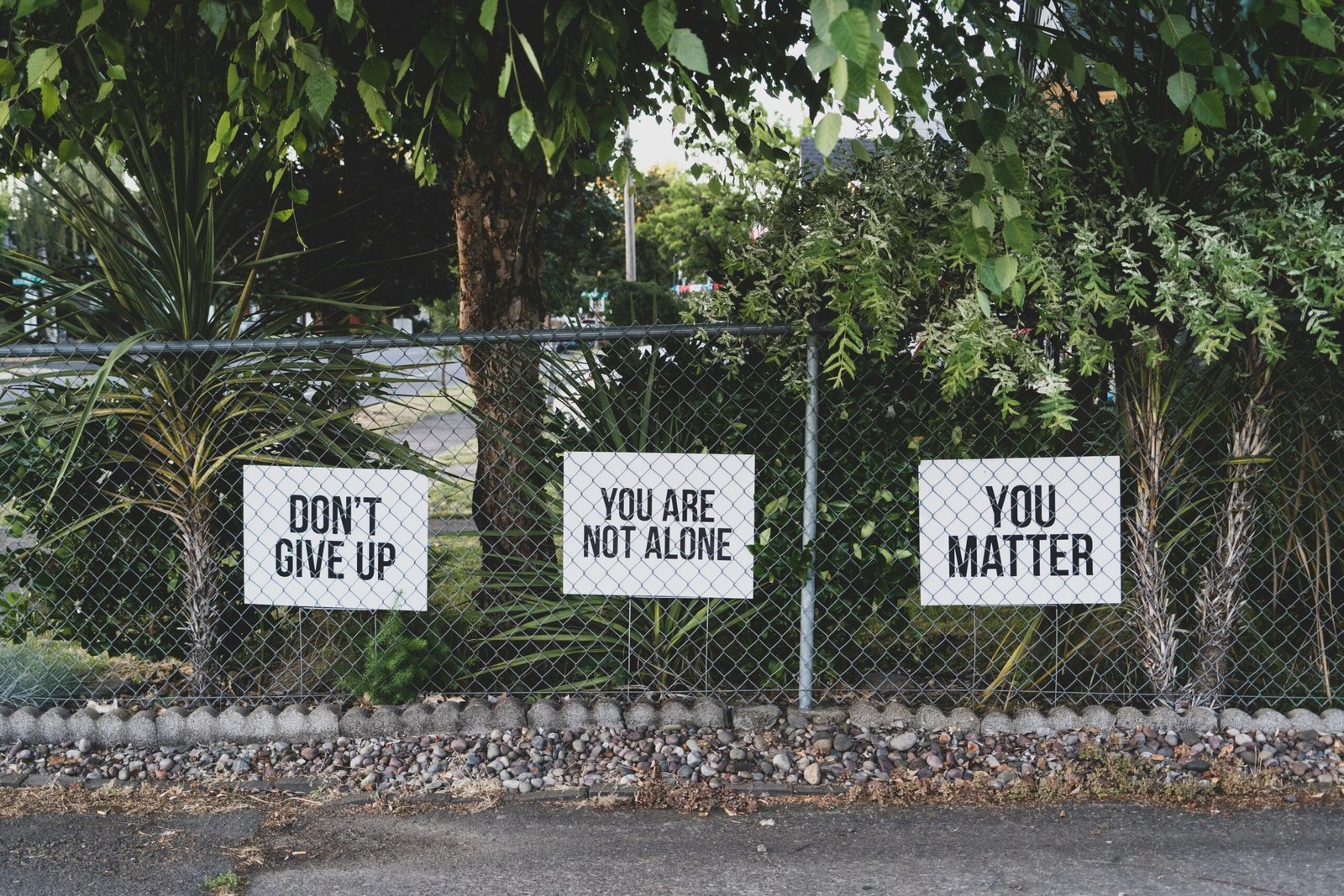Introduction to Samir: A Young Entrepreneur in Morocco
Samir is a promising young entrepreneur based in Morocco, carving a niche in the local business landscape. His journey began at a young age when he was exposed to the dynamic world of commerce through his family’s small retail operation. Inspired by their entrepreneurial spirit, Samir ventured into establishing his own startup, which quickly gained traction in the competitive market. Today, he stands as a testament to the vibrant entrepreneurial culture emerging within Morocco’s burgeoning economy.
The cultural context of entrepreneurship in Morocco is characterized by a blend of traditional values and modern business practices. Young individuals like Samir often grapple with the expectations placed upon them by society. There is a significant emphasis on success, which can create immense pressure to perform. In this environment, the metrics of success are frequently defined by financial gain and professional stature, thereby sidelining the importance of mental well-being.
Samir has successfully navigated various challenges in building his business, from securing funding to expanding his market reach. His innovative ideas and resilient nature have earned him recognition in the local entrepreneurial scene. However, as he pursued his ambitions, he became increasingly aware of the psychological toll that such a demanding career can impose. Societal expectations frequently contribute to his feelings of inadequacy, leading to stress and anxiety, which are unfortunately common among young professionals in Morocco.
While Samir’s achievements highlight his entrepreneurial spirit, they also reveal the underlying struggles that accompany these successes. As he embarks on his journey toward embracing vulnerability and addressing mental health, his story reflects a broader narrative relevant to many young entrepreneurs facing similar pressures in a rapidly evolving economic landscape. This exploration not only sheds light on individual challenges but also aims to foster an understanding of the mental health narrative within entrepreneurial communities in Morocco.
Understanding Mental Health Stigma in Morocco
Mental health stigma in Morocco presents a substantial barrier to individuals seeking the support they require. This stigma is deeply rooted in cultural beliefs and societal norms, leading to a widespread reluctance among individuals, such as Samir, to openly discuss their mental health struggles. The perception of mental health issues as a sign of weakness or personal failure can deter individuals from acknowledging their condition, resulting in prolonged suffering in silence.
One of the significant contributors to this stigma is the lack of awareness surrounding mental health. In Moroccan society, mental health problems are often misunderstood, and many people equate them with severe disorders that evoke fear and discomfort. This misunderstanding is compounded by a scarcity of resources and educational initiatives aimed at debunking myths related to mental health. As a result, individuals are left to navigate their challenges without adequate guidance or support.
Additionally, traditional beliefs around illness and health further complicate the landscape of mental health in Morocco. Many individuals adhere to the notion that psychological distress should be dealt with internally or within the family unit, rather than seeking professional assistance. This cultural belief places immense pressure on individuals to conform to expectations, discouraging them from seeking therapy or counseling. Consequently, individuals like Samir often find themselves trapped in a cycle of invisibility, where their internal struggles remain unaddressed due to the prevailing stigma.
In summary, the mental health landscape in Morocco is significantly influenced by societal stigma, misunderstanding, and cultural beliefs that hinder individuals from seeking help. Recognizing these factors is essential to understanding Samir’s journey and the broader challenges faced by those grappling with mental health issues in the region. Efforts to raise awareness and reduce stigma are crucial in fostering a supportive environment for individuals seeking to embrace their vulnerabilities.
Meet Lena: A Canadian Mental Health Advocate
Lena is a distinguished mental health advocate based in Canada, dedicated to fostering a culture of acceptance and understanding around mental wellness. Her advocacy work stems from personal experiences with mental health challenges, which inspired her to engage in meaningful conversations about vulnerability and its impacts on overall well-being. Throughout her journey, Lena has encountered various obstacles that not only tested her resilience but also deepened her empathy for others facing similar struggles.
With a background in psychology and social work, Lena has effectively utilized her educational foundation to inform her advocacy efforts. She has conducted workshops and seminars aimed at educating the public on the importance of mental health care and the significance of embracing vulnerability as a vital part of the healing process. Utilizing her own experiences has helped Lena connect with individuals on a personal level, illustrating the power of sharing one’s story in the pursuit of emotional healing and societal acceptance.
In addition to her educational outreach, Lena has collaborated with various organizations and support groups, working diligently to reduce the stigma associated with mental health issues. She recognizes that addressing this stigma is essential to encourage individuals to seek help, share their experiences, and ultimately move towards recovery. Through her efforts, Lena has become a beacon of hope for many, proving that vulnerability is not a weakness but rather a testament to strength and resilience.
Lena’s commitment extends beyond educational initiatives; she utilizes social media platforms to engage a wider audience, fostering a digital community centered around mental health awareness. By sharing her personal journey and encouraging others to voice theirs, she empowers individuals to challenge societal norms and embrace their emotions, thus promoting a healthier, more supportive environment. Her story and work represent a powerful stride towards transforming the landscape of mental health advocacy in Canada.
The Encounter: Samir and Lena’s First Interaction
On a crisp afternoon in a bustling café, Samir found himself seated at a corner table, absorbed in his thoughts. The aroma of freshly brewed coffee filled the air, a stark contrast to the whirlwind of emotions he had been grappling with for months. Just as he was about to retreat further into his solitude, Lena entered. Her presence was magnetic; she was animatedly discussing her day with the barista, a friendliness that immediately struck Samir. They shared a brief glance before Lena settled at the table adjacent to him.
As Lena arranged her belongings, Samir couldn’t help but overhear snippets of her conversation. She spoke candidly about her struggles with anxiety and her journey toward understanding her mental health. Each word seemed to reverberate within Samir, stirring a deep-seated longing for a similar openness in his own life. Unlike Lena, whose experiences seemed poised on the brink of self-acceptance, Samir was ensnared in a web of unspoken fears and societal expectations.
Curiosity piqued, he mustered the courage to introduce himself. Their conversation flowed naturally, with Samir amazed at how effortlessly Lena bared her soul. She shared anecdotes of her past, her relationship with therapy, and how embracing vulnerability had begun to reshape her existence. In that moment, Lena’s openness inspired Samir to reflect on his own mental health challenges, leading to an internal dialogue about the stigma surrounding these issues. Unlike him, Lena approached her difficulties with an authenticity that encouraged vulnerability and honesty.
What began as a casual encounter evolved into a pivotal moment for Samir. Lena’s willingness to share her story illuminated the path toward embracing one’s vulnerabilities. The seeds of reflection were sown in that café, prompting Samir to consider the transformative power of openness—a stark contrast to his previous hesitancy in discussing his own mental health journey.
Finding Inspiration: Samir Learns from Lena’s Story
In the quest for personal growth, finding relatable stories can serve as a significant turning point. For Samir, hearing Lena’s candid account of her struggles with mental health acted as a pivotal moment in his journey. Lena’s openness about her chronic anxiety and her experience of feeling isolated resonated deeply with Samir. For years, he had grappled with his own feelings of disconnection and vulnerability surrounding his mental health. Lena’s story illuminated for him that he was not alone in these experiences. This realization fostered an important sense of community that had previously eluded him.
Lena’s narrative served as a reminder that vulnerability is not a weakness, but rather a strength that can lead to healing. The way she embraced her challenges resonated deeply with Samir, prompting him to reflect on his situation. As he listened to her recount moments of both despair and hope, he began to question his own reluctance to share his feelings. Samir started contemplating the larger cultural stigmas associated with mental health issues, particularly those that had influenced his own life. Understanding that these barriers were often self-imposed allowed him to redefine his relationship with his vulnerabilities.
Encouraged by Lena’s journey, Samir began to take small but significant steps toward embracing his own feelings of inadequacy and fear. He started journaling about his experiences, slowly dismantling the walls he had erected over the years. This process became a form of catharsis, allowing him to voice his thoughts and emotions in ways he had never considered before. Lena’s example taught him that vulnerability could be a pathway to genuine connection rather than something to be hidden away, thereby initiating a transformative change in how he approached his own mental health journey.
Opening Up: Samir’s Journey Towards Vulnerability
The path to embracing vulnerability is a challenging one, especially for individuals like Samir, who initially grapple with mental health issues in silence. During a period of introspection, Samir recognized that harboring his struggles alone was an increasingly heavy burden. This realization prompted him to contemplate the significant step of opening up to those closest to him—friends and family—about his mental health challenges.
Deciding to share his experiences was not an easy task for Samir. He confronted a myriad of fears; concerns about judgment, misunderstanding, and the fear of appearing weaker in the eyes of loved ones weighed heavily on his mind. However, he understood that vulnerability could ultimately foster stronger connections and provide the emotional support he desperately needed. Summoning the courage to confide in others became a pivotal moment in his journey towards mental wellness.
When Samir eventually sat down with his friends and family to share his feelings, he experienced an overwhelming sense of relief. The emotional weight that had once burdened him began to dissipate, showcasing the profound impact of expressing oneself authentically. The reactions from those he confided in varied, yet many responded with empathy and understanding. These initial conversations ignited an open dialogue about mental health, helping not only Samir but also fostering an environment where others felt comfortable discussing their own struggles.
Samir’s experience illustrates that although the act of sharing one’s mental health challenges is daunting, the potential for connection and understanding is invaluable. As he began to navigate this complex emotional landscape, he realized that opening up was not a sign of weakness, but rather a powerful affirmation of human resilience and the need for support. This crucial step not only aided Samir in managing his mental health but also encouraged a broader conversation about vulnerability and the importance of mental well-being within his circle.
Creating Deeper Connections: The Power of Vulnerability
Embracing vulnerability is often viewed as a daunting challenge, yet for Samir, it has been a transformative journey that has significantly enhanced his relationships with others. By openly sharing his struggles and experiences with mental health, Samir has created an authentic connection with those around him. This openness not only fosters trust but also encourages others to express their own vulnerabilities, leading to a more profound understanding amongst peers.
Samir’s willingness to speak about his challenges has established a safe space for dialogue within his community. By addressing mental health candidly, he has empowered others to share their stories, thus dismantling the stigma typically associated with such discussions. This chain reaction highlights the ripple effect of vulnerability; as one person opens up, it encourages many others to follow suit. The supportive network formed from these shared experiences cultivates a sense of belonging, ensuring that individuals do not feel alone in their struggles.
Furthermore, vulnerability lays the groundwork for deeper connections by bridging emotional gaps that often exist in relationships. As Samir shares his journey, he reveals aspects of his character that promote empathy and compassion. Friends and family are more likely to relate to his experiences, fostering a deeper understanding and reinforcing a sense of community. By showcasing authenticity, Samir emboldens others to embrace their inner fears, ultimately leading to enriched interactions and lasting bonds.
In sum, the power of vulnerability as demonstrated through Samir’s journey serves as a reminder that by dismantling emotional barriers, individuals can cultivate a more supportive environment. The act of sharing one’s story not only encourages others to do the same but also enhances the overall mental health of the community, proving that vulnerability is a crucial component in building meaningful connections.
The Broader Impact: Changing the Narrative on Mental Health
Samir’s personal journey of embracing vulnerability and advocating for mental health stands as a clarion call for others to share their stories. His experiences resonate deeply, highlighting that mental health issues affect individuals from all walks of life. By sharing his narrative, Samir not only validates his own struggles but also opens the door for broader conversations about mental health. This transformation is essential in changing societal perceptions that often stigmatize mental illness.
Personal stories like Samir’s have a profound impact on how mental health is perceived. They serve to counter stereotypes and misconceptions, fostering an environment where individuals feel safe to speak about their own experiences. By emphasizing authenticity and vulnerability, these narratives challenge the prevailing stigma associated with seeking help and discussing mental health. Samir’s commitment to advocacy amplifies this trend, demonstrating the potential for personal battles to spark societal change.
Moreover, advocacy in mental health is crucial for building a supportive community. Individuals who share their narratives can inspire others to seek help and embrace their vulnerabilities. Samir, through his newfound mission, illustrates the power of peer support and collective understanding in breaking down barriers. Each shared experience contributes to fostering a culture of acceptance, allowing people to recognize that they are not alone in their struggles.
In conclusion, Samir’s journey signifies more than just personal growth; it marks a vital shift in the narrative surrounding mental health. By advocating for openness and understanding, he encourages others to share their stories, nurturing a supportive environment that affirms the importance of mental well-being. This collective effort holds the promise of fostering a more inclusive society, committed to accepting and addressing mental health challenges head-on. The ripple effect of such courage can transform lives and reshape the discourse on mental health for generations to come.
Conclusion: Embracing Vulnerability as a Path to Healing
In summary, Samir’s transformative journey underscores the powerful impact that embracing vulnerability can have on individual mental health. Through his experiences, we learn that allowing oneself to be vulnerable is not a weakness; rather, it is an essential step toward healing and self-acceptance. Vulnerability, as illustrated in Samir’s story, enables meaningful connections with others, fostering a support system that can be invaluable during challenging times.
The influence of Lena in Samir’s life serves as a poignant reminder of the importance of having empathetic individuals who encourage openness and vulnerability. Lena’s support not only provided validation of Samir’s feelings but also helped him recognize that sharing his struggles could lighten the burden he felt. This aspect of community support is crucial in breaking the stigma often associated with mental health issues. When individuals like Samir begin to share their stories, it invites others to do the same, creating a ripple effect of understanding and compassion.
As we reflect on Samir’s journey, it becomes evident that embracing vulnerability is not merely about revealing one’s struggles. It is about cultivating an environment where mental health conversations can flourish without fear of judgment. This shift towards openness can ultimately dismantle the barriers that prevent many from seeking help. Therefore, we encourage readers to embark on their own path of embracing vulnerability, sharing their stories, and supporting others in their journeys. By doing so, we can contribute to a more inclusive and understanding community, where mental health is prioritized, and stigma is gradually eradicated.




















No Comments
Leave a comment Cancel